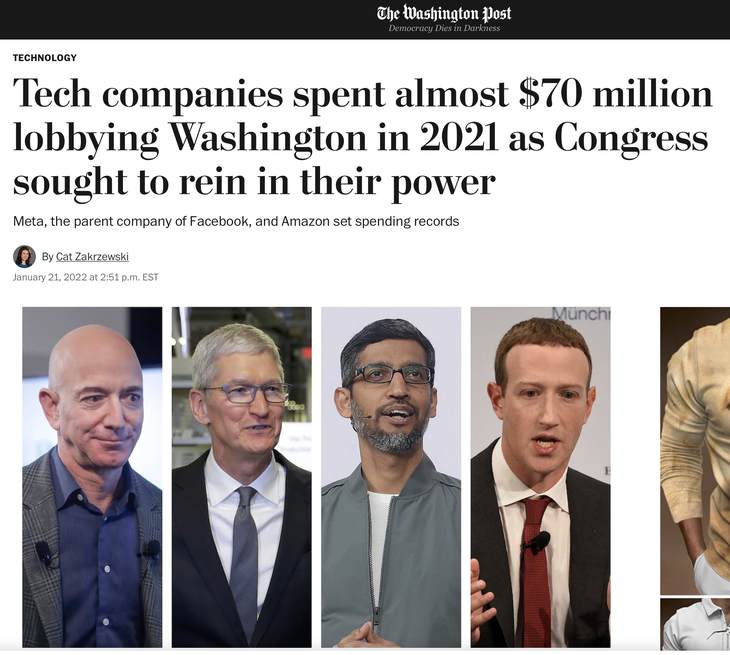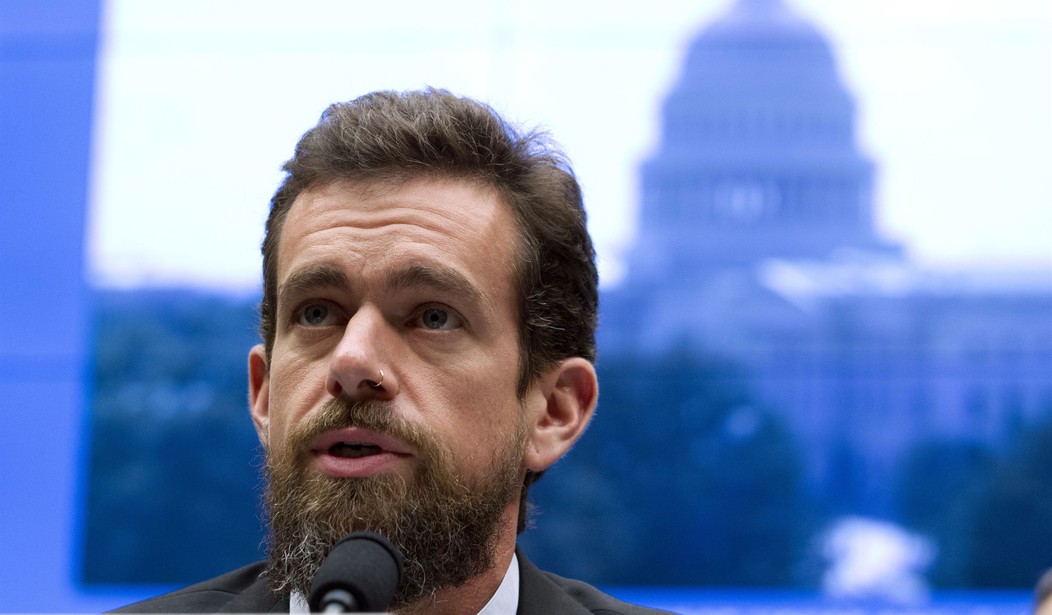By now we all know that the FBI had an outsized influence on Twitter’s moderation practices.
Over 80 FBI agents were tasked to monitor social media and manage relations with social media companies, helping drive the explosion of censorship on the internet over the past decade. That’s a lot of manpower to seek out random and not-so-random citizens who challenge the Narrative™.
In the early days–you know, when those of us who blogged still had to learn HTML code–the internet was supposed to usher in a libertarian paradise of free speech and dispersal of power. And for a few glorious years it seemed to work out that way. Dan Rather’s mendacity was exposed by the pajama brigades of citizen journalists, and it seemed that power would slip out of the hands of the cultural elites and become dispersed.
Yeah, that didn’t happen.
Why not? Facebook allows anybody and everybody to connect, and Twitter in some ways really did become the town square of the world. Many of the tech lords began life as free-spirited libertarians. So why did the utopia never arrive?
Good question.
Part of the answer, I think, is the inevitable link between cyberspace and real space. In cyberspace information may want to be free, but in real space–the physical world–powerful people don’t want anybody to be free. When Facebook and Twitter were fast growing and young they caught everybody by surprise. They were new, chaotic, and kinda glorious. A Wild West. They temporarily escaped the grasp of the powerful.
As in the Wild West, lots of money was being made and power was shifting rapidly. The Acela corridor folks noticed. They wanted a slice of the money and didn’t want to lose any of the power.
It was time to induct the tech bros into the club. It first happened with Microsoft, as you may recall. In the early days Microsoft didn’t even employ lobbyists, even after they became immensely rich and powerful. Why would they? They didn’t need help from Washington. They just wanted to be left alone.
Today big tech and big lobbying go together like peas and carrots. Not because the tech companies desperately need subsidies from Washington, but because they need to pay protection money to politicians. Regulations can kill you.

Twitter, as a company whose product is social influence more than software or stuff, has less money to throw around, but they have something that is perhaps even more valuable to the Elite™: it is a chokepoint through which most information flows, and hence is a place where The Narrative™ is fleshed out.
Their protection money, so to speak, was handing over at least partial control to the powers-that-be of the information flow.
That’s why, over the past few years, Twitter has become a home-away-from-home for FBI retirees.
The New York Post has the story.
Twitter’s top ranks were riddled with ex-FBI agents and executives, stitching the company even closer to the federal agency now under fire for leaning on Twitter to meddle in the 2020 elections.
More than a dozen former feds flocked to the company in the months and years prior to Elon Musk’s purchase of the social network in October.
The Post found FBI influence was considerably more significant than just James Baker, the FBI’s former general counsel who later worked in the same role for Twitter. He was recently fired by Musk for interfering in the billionaire’s efforts to come clean about past transgressions at the company.
The news comes on the heels of the latest Twitter Files disclosures which show how the agency dedicated dozens of agents to pressuring the company to remove political tweets it found objectionable.
In some cases, the former G-men and -women held positions that would have put them close to company leadership directly involved in censoring The Post’s Hunter Biden coverage in October 2020.
Twitter became a subsidiary of the Elite™. It had to. Washington threatened crippling regulation and there was no alternative. Twitter had little money to give, but they could offer sinecures for clients of the powerful, and the ability to control the flow of information. And that is what they did.
Matthew Williams spent more than 15 years with the FBI, working mostly out of Seattle, where he served most recently as an intelligence program manager and senior supervisory intelligence analyst.
Williams joined Twitter in June 2020 — the same month as Baker — as a “senior director of product trust,” according to his LinkedIn. In June 2022 he moved into a more expansive position as “senior director of product trust, revenue policy, counsel systems & analytics at Twitter.” He noted this made him “co-lead of Trust & Safety.”
Twitter staff before the Musk takeover were famously liberal, with 99% of employee campaign donations heading to Democratic candidates. Williams gave small but consistent amounts to Democrats running for federal office during his years at the company, Federal Election Commission records show.
Dawn Burton, a former federal prosecutor who served as deputy chief of staff to FBI boss James Comey, joined Twitter in September 2019 as director of strategy and operations and counsel organization, according to her LinkedIn and Bloomberg.
As a Comey insider, Burton would have been close to the agency’s Hillary Clinton email investigation as well as it’s probe into Russian interference in the 2016 U.S. elections She continued to serve in her role after Comey’s ouster in May 2017 and the appointment of Special Counsel Robert Mueller.
Putting high-ranking, political FBI-types at Twitter was a smart business move, but exactly the opposite of what the old Jack Dorsey, founder of the company, would have done. He only allowed it because he had no choice.
Which could explain why Jack Dorsey lost interest and faded into the background. His underlings basically took over and turned Twitter into a Narrative™ factory. That was the deal.
If you don’t want to be a member of the club then you pretty much have to leave. And he did.
Washington and New York types can force rebels to join the club because they control regulation and capital flows. You may recall that even during the Obama years, when Twitter was young and Facebook still growing, Washington types and their stenographers in the media were screaming for regulations to reign in social media. Those were all veiled threats: comply, or we will neuter you.
So Facebook and Twitter complied, and the Elite™ took over.
All this explains why the Elite has had its claws out for Musk. He is unbuyable, and very very hard to bully. He holds more high cards than most and has succeeded, in the main, on his own. He has used the system without becoming part of it. That makes him very dangerous, especially since he now controls one of the main chokepoints in cultural commerce.
I was optimistic that he could beat the blob, but I am losing my hope. The forces arrayed against him are too strong, and he invested too much of his wealth in this project. I suspect he will have to buckle, at least somewhat.
Perhaps that is why he did his poll about leaving as CEO?
What comes next? Who knows. Perhaps Musk can find a workaround. Or, perhaps, the Elite™ wins this round.








Join the conversation as a VIP Member